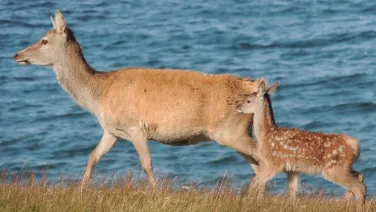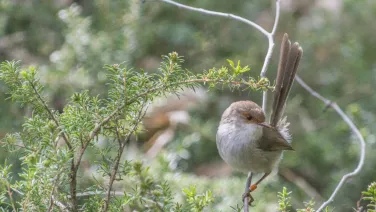News
News
Find out the latest news, announcements and stories about Biology at ANU.
Find out the latest news, announcements and stories about Biology at ANU.

Some clever detective work by an international team of scientists has uncovered how a deadly fungus - a stem rust called Ug99 - came about through some unusual breeding habits. The discovery will help protect wheat crops around the world from devastating fungal diseases.

Red deer on a Scottish island are providing scientists with some of the first evidence that wild animals are evolving to give birth earlier in the year as the climate warms.

Professor Hiroto Naora established the RSBS Molecular Biology Unit in 1968, which he directed until his official retirement in the mid-1990s. He donated funds to the Naora Hiroto Graduate Student Travel Scholarship. Further funding was donated by his daughter, Honami, after Professor Naora's death in 2019.

A first-of-its-kind citizen science project will put amateur butterfly-watchers at the forefront of research and conservation for the insect.

Australian research could help breeders develop more drought-resilient crops that can produce more food and more profit with less water.

Warmer temperatures linked to climate change are having a big impact on the breeding habits of one of Australia’s most recognisable bird species, according to researchers at The Australian National University (ANU).

Five years ago, an ANU biologist proved that most female songbirds sing, but it’s a finding that many people are struggling to accept.

Researchers at The Australian National University (ANU) have shown how Australian wheat crops would cope if a destructive disease that’s yet to hit our shores ever made it into the country.


Professor Barry Pogson, from the ANU Research School of Biology, was awarded $2.9 million to create higher-yielding and more resilient 'smart plants' for good and bad seasons.

A new study from The Australian National University (ANU) has shown the impact phosphate mining is having on our coral reefs.

New research from Australia and Finland could help explain one of nature's strangest quirks - why some animals forego mating to help other animals procreate.